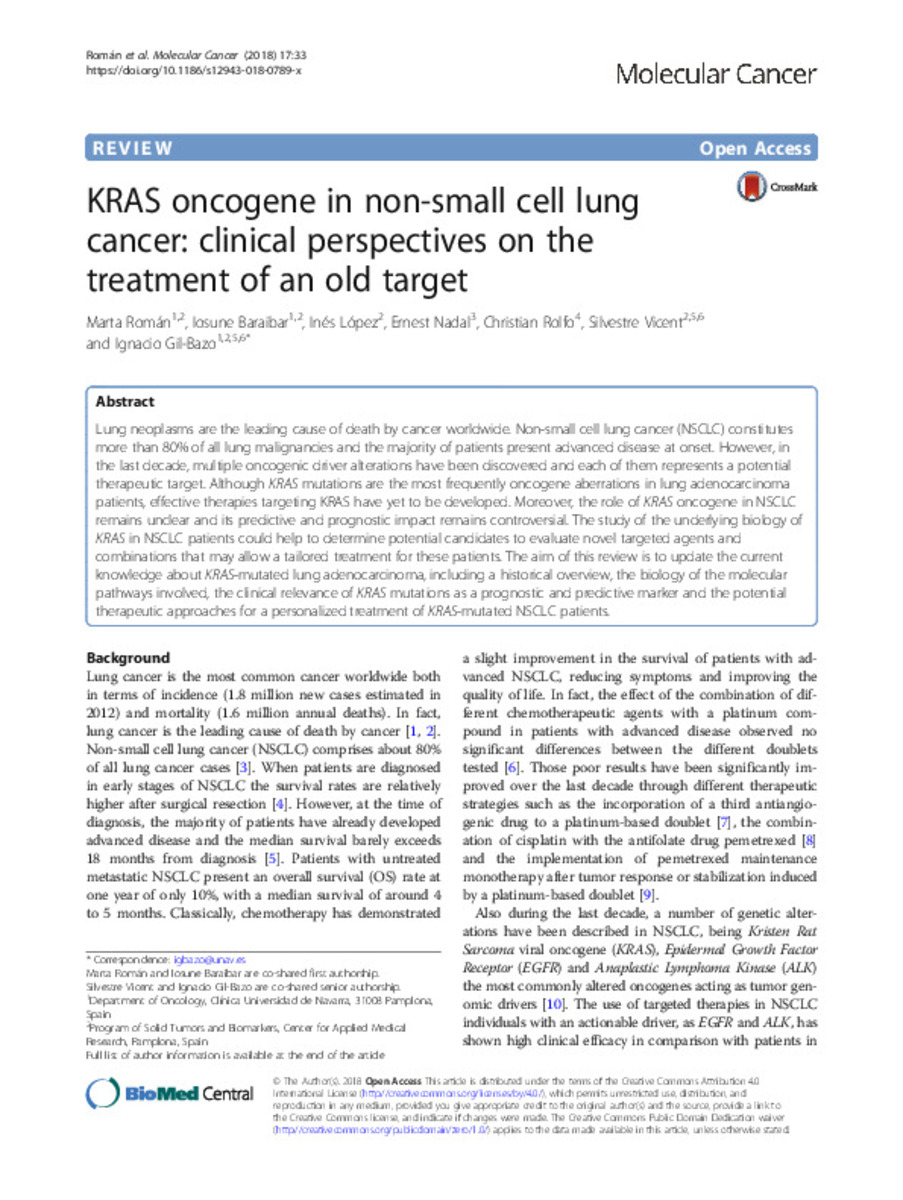KRAS oncogene in non-small cell lung cancer: clinical perspectives on the treatment of an old target
Keywords:
KRAS
Lung cancer
Note:
This article is distributed under the terms of the Creative Commons Attribution 4.0
International License (http://creativecommons.org/licenses/by/4.0/), which permits unrestricted use, distribution, and
reproduction in any medium, provided you give appropriate credit to the original author(s) and the source, provide a link to
the Creative Commons license, and indicate if changes were made. The Creative Commons Public Domain Dedication waiver
(http://creativecommons.org/publicdomain/zero/1.0/) applies to the data made available in this article, unless otherwise stated
Citation:
Román, M. (Marta); Baraibar-Argota, I. (Iosune); Lopez, I. (Inés); et al. "KRAS oncogene in non-small cell lung cancer: clinical perspectives on the treatment of an old target". MOLECULAR CANCER. 17 (1), 2018, 33
Statistics and impact
0 citas en

0 citas en

Items in Dadun are protected by copyright, with all rights reserved, unless otherwise indicated.







